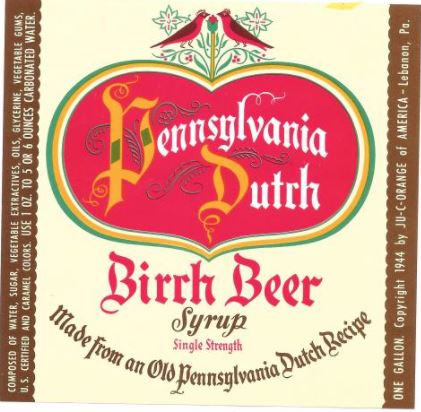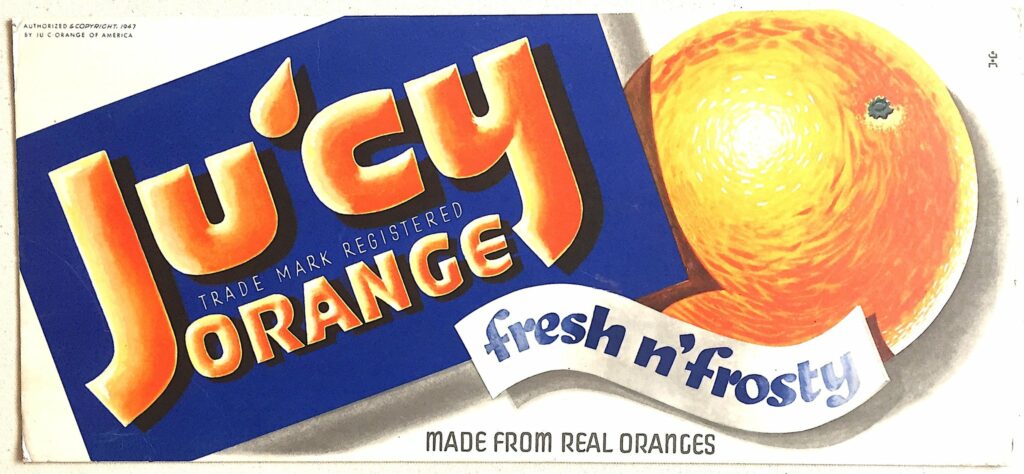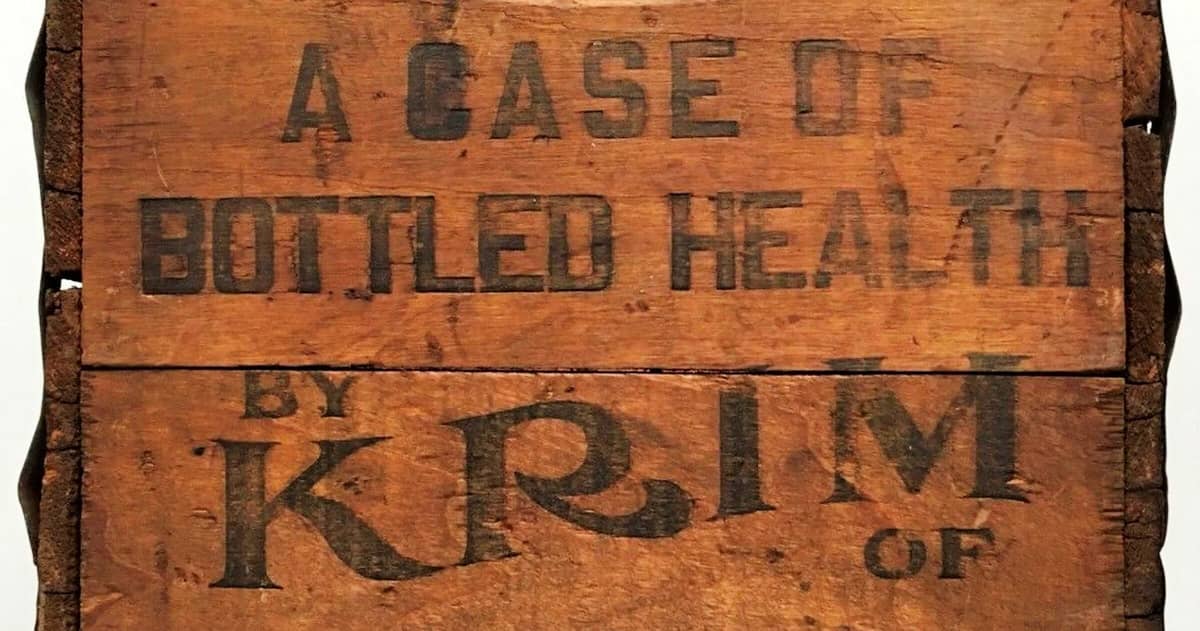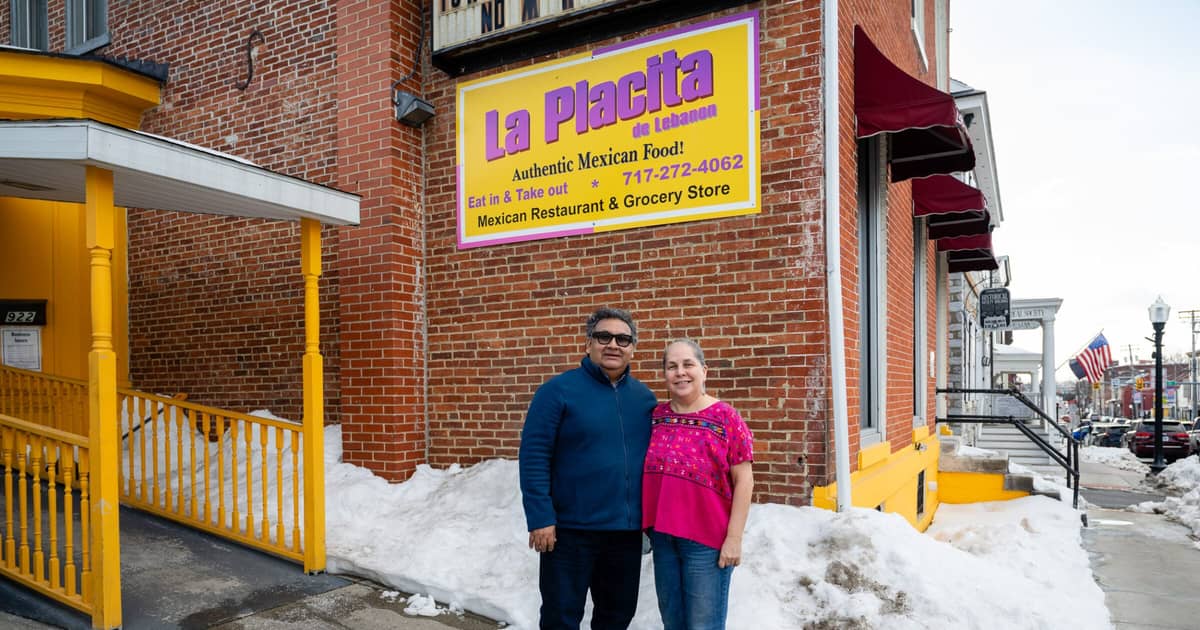Some people are born to greatness. Some people have greatness thrust upon them.
Others attain greatness through great carbonated drinks.
Many Lebanon County residents know of and remember Krim’s Beverages as great-tasting, locally made soft drinks. But like all great stories, there were great people who made it happen.

By name, they were Max Krim, Irwin Krim, and Nate Krim, two generations of the Lebanon Krim family. Max was the father and founder of Krim’s Beverages, and Irwin and Nate were his sons, who worked for him and eventually took over the family business.
The Krims made soda, or pop, at a time when soft drinks were probably the most popular beverages in the country. The Krims manufactured their soda right here in Lebanon, its popularity grew to include neighboring cities and states, and today, one of their regional brands still survives as a testament to the quality of the products that the Krims produced way back when.
“Here was this tiny company that was punching above its fighting weight,” said Jeff Davison, maternal grandson of Irwin Krim and great-grandson of Max Krim. “My grandfather was a perfectionist, and I think that came through in the product. They tried to use the best stuff to make the best product, because he was trying to compete on quality.”

“I would be really surprised if many people knew about Krim’s Beverages,” said Davison. “They would know about Pennsylvania Dutch Birch Beer. I think generally they associate our family with the brand. The only people who really know about it collect soda memorabilia.”
From the 1920s to the 1970s, Krim’s Beverages produced a number of soda products, including but not limited to, Cream Soda, Sarsaparilla, Ju’cy Orange (or Ju-c-orange), Ju’cy Grape, Pale Dry Ginger Ale, Club Soda, and Pennsylvania Dutch Birch Beer. Krim’s Beverages were produced in a modest plant at 406 South Broad St. in Lebanon.

“When they were old enough, my great uncle Nathan and my grandfather came into the business and worked for Max,” said Davison. “They operated the business as a threesome until my great-grandfather passed away. My grandfather was kind of the inventor. He was a self-taught food chemist. He developed the formula for Pennsylvania Dutch Birch Beer. They were constantly improving their products and trying things. I worked in the business, in the factory, when I was young and I knew all the people who worked there.”

“My grandfather was also one of the first people who came out with a diet soda,” said Davison. People only drank soda during the summer in the 1920s and 1930s. Nearly every soda maker at that time was seasonal. After World War II, soda consumption really picked up its pace. The “boom” time for soda was in the 1950s and 1960s. In the early 1960s, the company came out with a diet option of birch beer soda. This was a local phenomenon that spread to eastern Pennsylvania and New Jersey. The trend started to plateau by the 1970s.
At the time, Krim’s Beverages employed about 30-35 local residents. But bottling and distributing Krim’s Beverages required just as many man-hours as producing them.

“They also had salespeople,” said Davison, a 65-year-old resident of Bethlehem. “The number of people working in the manufacturing part was kind of small, like ten people. You had to have drivers to deliver the stuff. You had to have salesmen knocking on the doors of every single grocery store. They had people driving as far as Pittsburgh and Maryland. It took a lot of work to get the product into the hands of people who wanted to buy it.”
“You’d be amazed at how much sugar it takes to make soda,” said Davison. “The way it was made, you’d take food coloring, flavoring, water, and sugar, and you’d mix it in these large stainless steel vats. A guy on a forklift would take these 100-pound bags of sugar and pour it into the top of these vats. Then you would pour it into these mixers, run it, and it would create this syrup. Everything (bottles) was returnable. There was bottle-rinsing equipment and there was sanitizing equipment.”

Max Krim was originally a local grocer, before starting Krim’s Beverages right around 1920. He sold soft drinks at his Broad St. grocery store, then realized that making soda would be the natural extension of his business.
“People used to buy soda in his grocery store, so he went into the soft drink business,” said Davison. “He became a soft drink bottler for Orange Crush. He started bottling someone else’s product. After ten years, on the verge of the Great Depression, they went off on their own and started making their own line of products.”

“In the early days, there were a lot of different people who made soda products,” said Davison. “But a lot of those companies ended up getting challenged by bigger companies. They spent a lot of time on ingredient development, to make them good. In the 1930s, soft drinks were seen as having the ability to make you better. As the market became more competitive, it became tougher for small producers to get shelf space in grocery stores.”
In 1958, not long after Max Krim’s death, Irwin Krim and Nate Krim sold a significant portion of the business to the owners of MA’s Old Fashioned Root Beer. But the younger Krims continued to produce Ju’cy Orange, as well as the soft drink syrup needed by retail businesses like restaurants, pizza shops, and bars, until the early 1970s.
“My family wanted to simplify the business and sell the syrup,” said Davison. “After my grandfather died, my great uncle decided to sell the business. But it still exists today. It’s one of the oldest independently owned soft drink companies in the United States. It’s interesting to me what they did. Everybody knows the (Pennsylvania Dutch Birch Beer) product. It’s stood the test of time.”

“It’s a terrific local story of a company that beat the odds,” said Davison. “After a hundred years, you can count the number of companies on one hand that’s still independent and selling their own products. There are very few companies like that that still exists.” Davison also talked about the work ethic, intellect, and creativity of his ancestors which is evident in the Pennsylvania Dutch Birch Beer formula and its continued relevance.
Not unexpectedly, the story of Krim’s Beverages is one that is near and dear to Davison’s heart. It’s one he lived first-hand, working at the plant as a teenager, and one he has kept alive through years of researching his family’s business.
“Of course, I drank them growing up,” said Davison. “The cream soda was awesome. I was at Knoebel’s (Amusement Resort in Elysburg) about four or five years ago, and they were selling the clear Pennsylvania Dutch Birch Beer out of a fountain. Ju’cy Orange was really good too. They used real orange juice concentrate to make it. Normally, when you open a refrigerator, there’s food in it. But when we would go to my grandfather’s house and open the refrigerator, there would be 50 bottles of soda in it, and they were all different.”

“I worked in the plant in the summer, and there was no air conditioning,” concluded Davison. “My grandfather had a laboratory inside the plant, where he did his formulating, but it was air-conditioned. The plant was hot and I would do anything I could to stay in there. They had a great following. They had a great product.”
There really was no secret to the success of Krim’s Beverages.

Questions about this story? Suggestions for a future LebTown article? Reach our newsroom using this contact form and we’ll do our best to get back to you.

Support Lebanon County journalism.
Cancel anytime.
Monthly Subscription
🌟 Annual Subscription
- Still no paywall!
- Fewer ads
- Exclusive events and emails
- All monthly benefits
- Most popular option
- Make a bigger impact
Already a member? Log in here to hide these messages
Free local news isn’t cheap. If you value the coverage LebTown provides, help us make it sustainable. You can unlock more reporting for the community by joining as a monthly or annual member, or supporting our work with a one-time contribution. Cancel anytime.



























